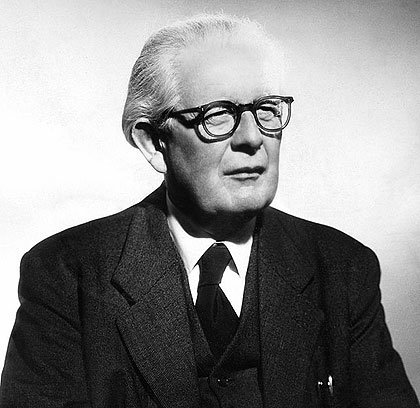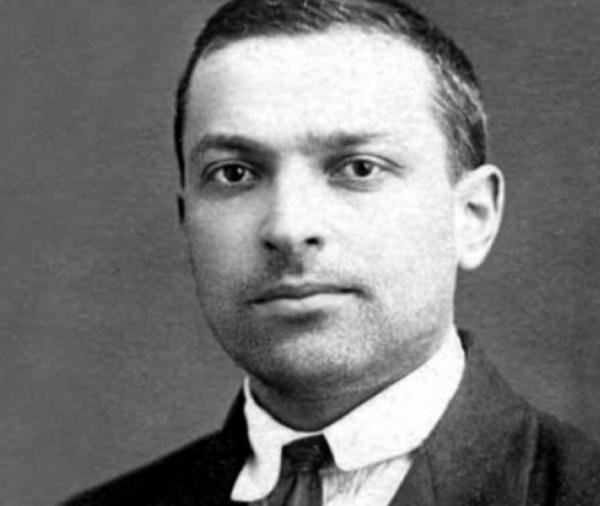Best regards, colleagues at Hive!
I had been disappeared again, I know, they have been very different days, but the motivation for research, which, I have shown during my career as a blogger, has not waned for a single second. In the same vein, I wanted to bring content -in my opinion as a writer and journalist, extremely interesting- however, I hope it is you who, with your critical eye and transparency, can determine reality.
The chosen topic will be presented as a methodological investigation, which, however procedural, will have some dialectical and qualitative foundations, and theoretical contextualizations; I recommend reading each part of the article carefully, as well as evaluating the information presented in it.

1. INTRODUCTION:
At the moment that we proceed to carry out a transcomplex research, or in this case, an approach to a transcomplex reality, we must figure out our epistemological bases, which will be -as coffee is sugar- is the epistemology of research. We will also unmask a universe of possibilities that will unequivocally lead to reason, or to a part of reason - described in philosophy as relative truth. I must say that this is an extremely important point, because the intention of the research, as well as the researcher, is not to pose a problem and solve it, due to the magnitude of its structured complexity, that is, the problem is so Large that with a simple contribution cannot be solved, therefore, the present reading, article or investigative narrative will not try to solve the problem or focus on it directly, but rather on its variables, hypotheses and formulations that may arise from the context. Referring readers to form groups that encourage scientific-social-pedagogical debate to create a future range of ideas and dimensions.
It should be noted that, for purely professional purposes, the truth will be understood not as one, tacit, ethereal, indivisible, on the contrary, the dialectical base suggests that we work with reality as a part of the whole, from a macrostructural perspective, variable, homogeneous.
2. CONTEXTUALIZATION OF THE PROBLEM:
Since the beginning of social distancing, but not exactly the term "quarantine" since we have been in preventive isolation for more than forty days, both higher and secondary education institutions have opted for distance education, but have we questioned whether they are really a pedagogical-andragogical space? Does it really allow the notion of apprehended knowledge or the valuation of knowledge? If it is a possible reality, what conditions are needed to carry out said activity? Where are the theories of knowledge or outstanding currents of pedagogy-andragogy in this modality?
Like all research work, the first thing to do will be to diagnose the problem, signed as a question: "Are virtual classes a pedagogical-andragogical environment?".However, in a different vein we could pose the problem in a more formal way - better entitled- "Study of the pedagogical-andragogic functionality of distance education in the 2019-2020 season due to Covid-19 conditions"however, it is worth noting that our research sense will be based on a qualitative approach.
3. STUDY OF VARIABLES (ACCORDING TO AUTHORS):
Jean Piaget - Pedagogy:Pedagogy is the first step or the first task that the educator must use to adapt the student in a learning situation, building the interest of the child so that he can understand and act through a method or an instrument; In the pedagogy that Piaget uses, it can be said that there is an explanation and a series of mechanisms such as assimilation and accommodation, since they allow the child to restructure through experience, since through this he can do formal and concrete operations.
This way of thinking stands out, with a dialectical and Marxist formation, but not dogmatic of the world, he thought that a scientific psychology corresponded to give an account of the creations of knowledge; it was unavoidable to anchor a "historical" extension in the very core of psychology and to conceive consciousness from its nature and organization.
- What is pedagogy?

It is understood how the study of methods, processes of teaching and education, focused mainly on the children's area. It is mostly composed of a driving-stimulus typology with dogmatic tools.
- What is andragogy?

Better known as the art of teaching adults, but composed of the suffix that symbolizes study, that is, study of art for adult education. Its epistemological base is self-taught-constructivist, pragmatic, dialectical and eclectic.
- How do both teaching sciences work?
Both teaching sciences base their operation thanks to the theories of knowledge, which will be discussed in greater depth in the next few paragraphs. The important thing is to recognize that pedagogy originally works with a child group, while andragogy is oriented to an adult audience; in this way, two groups with teaching models, methods and processes different from each other.
4. STUDY OF THE THEORIES OF KNOWLEDGE (PEDAGOGICAL-ANDRAGOGIC):
Despite being two similar sciences in their thesis but not in the field of practice, both andragogy and pedagogy work the same schools of knowledge, mostly defined as "currents of teacher-epistemology thought", which are divided into:
- Conductism: Its purpose is clear, to lead the group to knowledge; However, it is one of the schools that is most criticized for its unorthodox methods and instruments that have not historically been of the greatest functionality. Do you remember the rules or slaps that the teachers gave us gently (joke) in 1960?
Example: Simón Bolívar's white horse!
What color is the horse?
White obviously, why, they lead us.
- Constructivism: Discarding the previous school, some groups of psychologists and teachers decided to propose a new theory that would surpass the behaviorist current, therefore, constructivism was born, which substantially has two vital premises: build and stimulate knowledge.
Example: What color is Simón Bolívar's horse? it can be black, white or green ...
their interest is mainly to build healthily without the need to give us the answer directly.
- Cognitivism: Corresponds to the third school of knowledge, it raises an even more complex understanding of the student, since this current proposes the complexity of what is done and said as one of its principles.
Example: What color horses are they? Who is Simón Bolívar? What color was your horse? Why did he have a horse?
- Marxist: Founded by the Marxist school of Marx and not of the Soviet Union (just in case) it proposes the negation of the negation, known in Latin as "contradictio ad contradictione" which means contradiction of the contradiction, also this Teaching level pursues doubt, questioning and interpreting with the use of Marxist dialectics the research scenario, which should be universal, since the same school denies abstraction as a means for authentic knowledge.
Example: What if Simón Bolívar's horse was not white? Simon's horse could and could not be white.
Humanist: It establishes that knowledge must come solely and exclusively through the human factor and gene, that is, the axiological part (values) printed in the classroom, class or explanation, from a sensitive, conservative and pragmatic perspective, discarding the objectivity as a means, but rather subjective and debatable assessment.
Eclectism: This current of thought was the last to join the group of main schools in theories of knowledge, it proposes that the teacher should be able to use all the houses of knowledge (behaviorism, constructivism, humanism ...) taking the positive of each one to achieve empathy with their public with a mixed knowledge of educational chairs.
Example: It is variable, you can use any example previously mentioned.
5. VIRTUAL ENVIRONMENTS:
Faced with the pandemic (Covid 19) or as they like to nickname it, universities and educational institutions have opted for virtual environments as means and instruments (resources) so as not to suspend work and continue offering knowledge through distance classes, however, in our methodological picture and question, are these pedagogical classes really? Can theories of knowledge work in virtual environments?

In a virtual space we have different systems for both the teacher, professor, teacher, as well as for the student, including visual, auditory and audiovisual systems, but not exactly in all cases, since there are various educational institutions that are not doing From this somewhat "pedagogical-andragogical" experience, here is the problem that we have previously pointed out, but this part will be better described in the next paragraph.
6. OPPOSITION TO THEORIES OF KNOWLEDGE IN VIRTUAL ENVIRONMENTS:
Of course, this part could not be absent, since the basis of the problem is subject to the functionality of virtual spaces in the academic context, but the highest degree of relevance to learning must be anchored to theories of knowledge, that is, if the theories of knowledge cannot be accommodated in virtual spaces, it will not be something pedagogical-andragogical and in view of what is stated in this research there will certainly not be a notion of apprehended knowledge.
The question that we really must ask ourselves is: Is there a discard to the currents of thought-theories of knowledge in distance education? Why?
We begin to mention one of the most interesting points of the investigation, we could even mention that the entire writing was born from this general principle. Colleges and universities have decided to opt for online, digital strategies and mechanisms to continue imparting new notions, but what if they actually alienate us from true knowledge? It's all in the theories!
The following survey-type points will establish the judgment in what may or may not be determined as a pedagogical-andragogical scheme with your children, relatives, parents, and even for yourselves:
- Do they use audiovisual mechanisms?
- Do they allow debate and universal opinion? How is the quality and nutrition of the debate?
- Are the instruments effective for the class?
- Are there technical or procedural failures in the activity?
- Are the conditions suitable for both the teacher and the public to use virtual environments?
- What theory of knowledge can you catalog from your experience in virtual classes?
- Understanding the content described in previous chapters of the research, are the virtual classes pedagogical-andragogical?
7. APPROACHES TO A TRANSCOMPLEX REALITY IN TIMES OF PANDEMIC: DEHUMANIZATION OF PEDAGOGY-ANDRAGOGY
Somehow the spectrum of innovation has created a new pragmatic focus in pedagogy and andragogy, even with its limits of contributions and comfort, there would be what my person has managed to classify as "dehumanization of pedagogy-andragogy- of course, referring to the humanist current, since the media and resources differ in their orientation, translating, no matter how virtual the classes, have not managed to be completely human. Our first hypothesis suggests that even more transcendental changes must occur to build a functional environment -and what concerns us at this time- consolidate the human factor in distance classes.
In teaching they commonly speak of "proxemia" being understood as the level of closeness between the teacher and his group. Faced with this diatribe, what is the proxemic level of the class speaker and his students in virtual environments? Have they achieved true closeness or just an illusion of it? Did the evolution of teaching take place in the virtual field or are the conditions still not suitable?
8. NOTION OF LEARNED KNOWLEDGE:
Let's say that, everything investigated in this extensive article is mainly of interest for this closing point "the notion of apprehended knowledge" translation, what we know and have managed to apprehend significantly or in a representative way. Of course, understanding the human mind is concretely a level of complexity so high that it can even be called unknown, but, it would make sense to argue, that all theories, however pedagogical or andragogical, pursue this same ideal "* make groups learn what they is being taught * "if not, surely something is wrong and again the notion of apprehended knowledge would not coexist.
9. CONCLUSIONS:

Researchers, our tedious work has not yet finished, since the reality subject to the content has been only the cherry on the cake, and there is still a lot of cake to cut, know, understand, understand, I will leave the prerogative that perhaps the Digital evolution will be a factor that adds both pedagogical and andragogical tasks in its possibilities, without sparing in the near future the immense task that being a teacher means in these hectic times, and with greater firmness or emphasis, the task of being a virtual teacher. Yes I have had the pleasure of running into a fellow teacher or student, I would love to know their opinion, with this to be able to understand precisely the answer to the problem and the facts.
I immensely appreciate having taken the trouble to read all the content, it is a piece that perhaps not everyone tacitly values, but it is undoubtedly our pillar of primary, secondary and professional formative growth.


